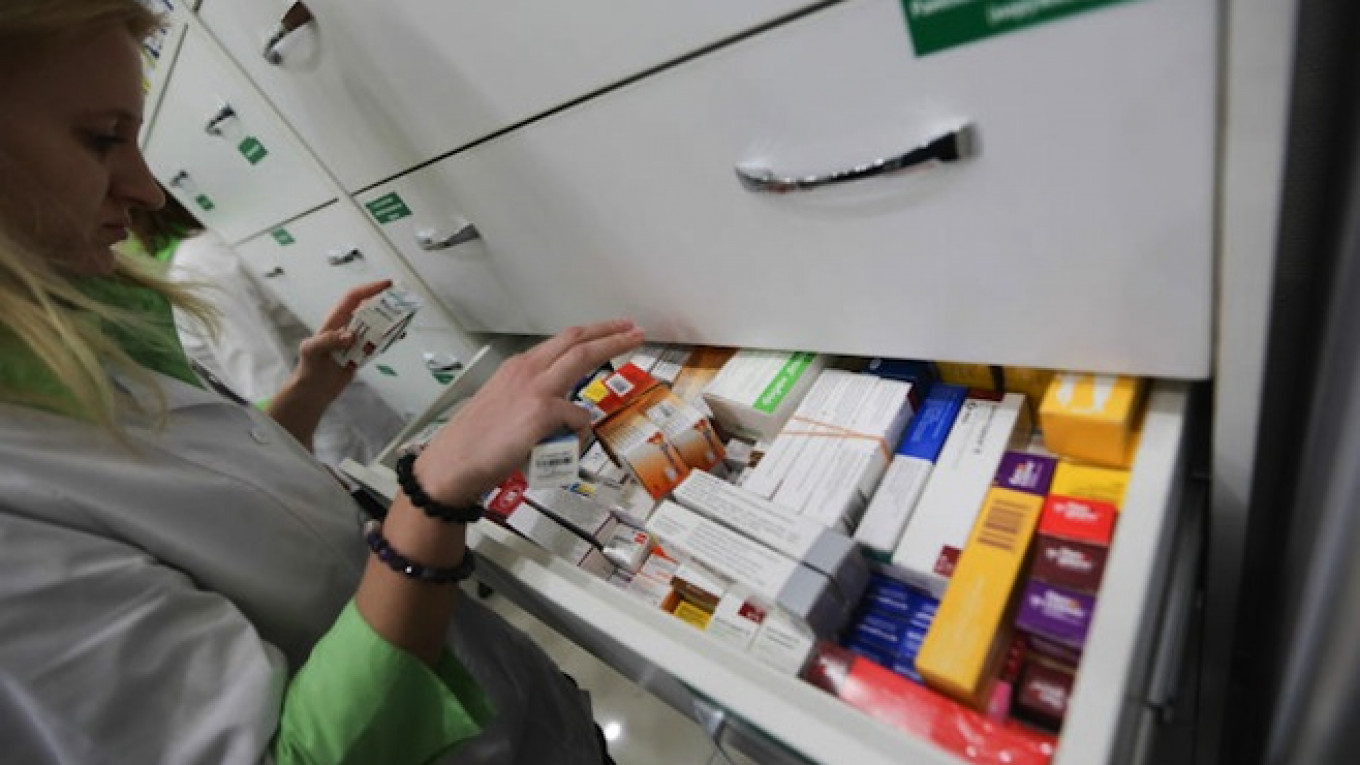BUDAPEST — Hungarian drugmaker Richter reported Monday a 4.2 billion forint ($15.6 million) loss in the fourth quarter that missed analyst forecasts for a profit, hit by losses due to the plunge in the ruble in its biggest market, Russia.
Richter, which makes gynecological, cardiovascular and central nervous system drugs, had already warned in December of a significant loss in the fourth quarter as the declining value of the ruble hit turnover and operating profit.
The quarterly loss came after a 2.9 billion forint profit booked in the same period a year ago, also falling well short of forecasts for a 3 billion forint profit in a recent survey of eight analysts by financial news website portfolio.hu.
Richter said reassessment of foreign currency related assets and liabilities at the end of last year triggered a substantial loss, mainly due to the falls in the ruble.
"The total impact of such reassessments amounted to a 13,551 million forint loss at the end of 2014, 8,851 million forint more when compared with the 5,000 million forint loss reported in 2013," it said.
The quarterly loss exceeded even the most pessimistic analyst forecast in portfolio's survey. Richter was also hit last year by weaker sales to crisis-hit Ukraine and to Poland.
Fourth-quarter revenues were down by 0.9 percent to 90 billion forints and while operating profit rose as most costs declined in the period, the financial loss dragged Richter's bottom line deep into the red.
For the full year, Richter's operating margin fell to 11.1 percent of revenues, the top end of its 10-11 percent guidance, from 13.2 percent in 2013.
Revenues fell by 3.4 percent to 1.14 billion euros, slightly better than Richter's forecast for a 5-6 percent annual decline.
Richter, a major regional player with market capitalization of $2.67 billion, has been expanding its business into Western Europe, Latin America and China to mitigate the impact of the crisis on its eastern operations.
The company's shares have gained 2.9 percent over the past three months according to Reuters data, outperforming the blue chip index, which rose 1.1 percent.
Four of 10 analysts tracked by Thomson Reuters rate the stock at various levels of "buy," two rate it as "hold," while four have assigned different levels of "sell" recommendations.
A Message from The Moscow Times:
Dear readers,
We are facing unprecedented challenges. Russia's Prosecutor General's Office has designated The Moscow Times as an "undesirable" organization, criminalizing our work and putting our staff at risk of prosecution. This follows our earlier unjust labeling as a "foreign agent."
These actions are direct attempts to silence independent journalism in Russia. The authorities claim our work "discredits the decisions of the Russian leadership." We see things differently: we strive to provide accurate, unbiased reporting on Russia.
We, the journalists of The Moscow Times, refuse to be silenced. But to continue our work, we need your help.
Your support, no matter how small, makes a world of difference. If you can, please support us monthly starting from just $2. It's quick to set up, and every contribution makes a significant impact.
By supporting The Moscow Times, you're defending open, independent journalism in the face of repression. Thank you for standing with us.
Remind me later.






